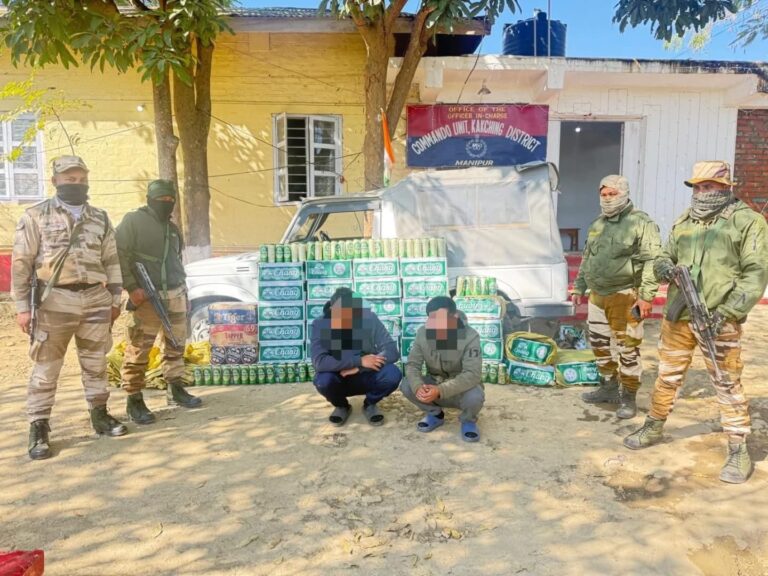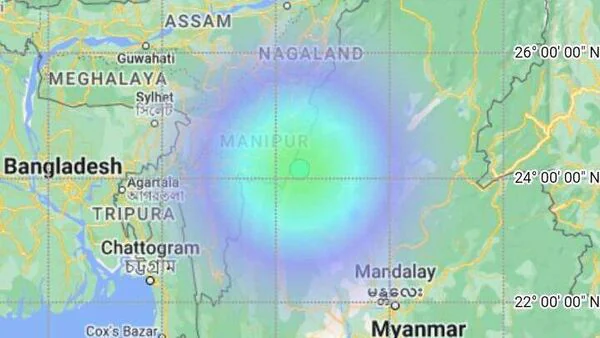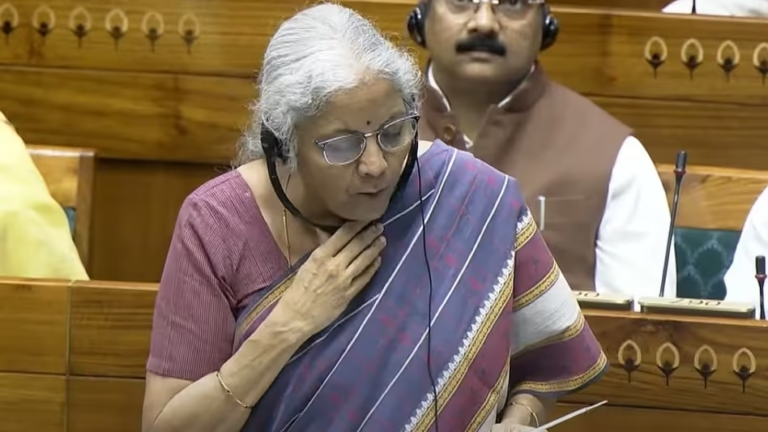Manipur Governor Extends Arms Surrender Deadline Amid Public Demand: A New Chapter in Regional Security
Introduction
Have you ever felt that the power to change a situation lies right in the hands of the people? In Manipur, that’s exactly what’s happening. The Governor’s recent decision to extend the arms surrender deadline has stirred up a mix of relief, hope, and renewed determination among the citizens. This bold move isn’t just a bureaucratic tweak; it’s a lifeline thrown to communities yearning for peace and stability. Today, we’ll break down this transformative decision, explore its background, and delve into its far-reaching implications for regional security and public trust.
Understanding the Arms Surrender Initiative
Let’s start with the basics. The arms surrender drive is a program designed to encourage the voluntary handover of illegal weapons. Think of it as a community-wide clean-up, where dangerous tools of violence are replaced with hope and safety. For years, this initiative has aimed to disarm individuals involved with illegal arms—an essential step in curbing violence and building a secure environment. The recent extension of the surrender deadline underscores the commitment of Manipur’s leadership to address lingering concerns and to give more people the chance to step away from the shadow of violence.
Why Extend the Deadline?
You might ask, “Why did the Governor decide to extend the deadline?” Well, the answer is as simple as it is profound. Public demand has been a driving force behind this decision. Citizens, community leaders, and local organizations have called for more time to facilitate a smoother, more inclusive disarmament process. Many believe that an extended deadline allows for better outreach, increased awareness, and ultimately, a larger number of weapons being surrendered voluntarily. It’s like hitting the refresh button on an important initiative, giving it a new lease on life with a renewed focus on safety and community trust.
Public Demand: The Heart of the Decision
Imagine a community where every voice counts—a place where public opinion truly shapes policy. In Manipur, the public’s call for more time to surrender arms has resonated strongly with the authorities. Citizens have expressed their concerns over lingering threats, emphasizing that a rushed process could leave dangerous weapons on the streets. The extension is not only a recognition of these valid concerns but also an invitation for more community members to participate actively. It’s like opening the doors of a community hall a little wider so everyone can come in and share their thoughts.
Historical Context: The Arms Surrender Drive in Manipur
Manipur’s struggle with illegal arms isn’t a new story. For years, the state has been caught in a web of conflict and violence, where illegal weapons played a central role. Previous arms surrender drives have been pivotal in reducing violence, yet challenges have persisted due to the deep-rooted nature of the arms trade and local militancy. By extending the deadline, the state government is acknowledging past hurdles and showing its willingness to refine and improve the process based on real-world feedback and public sentiment.
Historically, disarmament drives have faced obstacles ranging from mistrust among community members to logistical challenges in reaching remote areas. The extension serves as a learning curve, a chance to build on previous efforts and ensure that more individuals feel secure enough to come forward without fear of retribution or social stigma.
The Role of the Governor: A Symbol of Authority and Trust
At the center of this initiative stands the Governor—a figure symbolizing both authority and the promise of reform. When the Governor extends such a critical deadline, it sends a clear message: public safety and community welfare are non-negotiable. This decision reinforces the belief that the government is listening to its people. Just as a captain steers his ship through stormy seas by adjusting the sails, the Governor is realigning policy to better serve the community’s needs.
Security Implications and Community Safety
Now, let’s talk about the big picture. How does this extension contribute to overall security in Manipur? The simple answer: by removing more illegal arms from circulation, the state is effectively reducing the tools of violence. With fewer weapons in the hands of potential criminals, there’s a significant decrease in the risk of violent incidents. It’s akin to clearing a garden of weeds—the healthier, more vibrant plants (or communities, in this case) have a better chance to thrive without being choked by the invasive species of violence and crime.
Furthermore, this move enhances community safety by building trust between citizens and law enforcement. When people see tangible action being taken to disarm dangerous elements, their faith in the system is restored. This trust is crucial for effective policing and for ensuring that citizens feel secure enough to cooperate with authorities in the future.
Economic and Social Benefits of Disarmament
Removing illegal weapons from the streets doesn’t just improve security—it also paves the way for economic growth and social stability. When communities are free from the constant threat of violence, businesses can operate without fear, tourism can flourish, and local economies can prosper. Imagine a bustling marketplace where everyone feels safe enough to trade freely—that’s the kind of environment disarmament can help create.
Socially, the benefits are equally compelling. Disarmament fosters a sense of unity and purpose. It provides an opportunity for former holders of illegal arms to transition into more constructive roles within society. Programs associated with the arms surrender drive often include vocational training and support systems, helping individuals rebuild their lives and contribute positively to their communities.
How the Extension Will Be Implemented
You might be wondering, “What does this extension actually mean on the ground?” The process will likely involve a series of public announcements, community meetings, and revamped logistical plans to ensure that the extended deadline reaches every corner of Manipur. Authorities are expected to enhance their outreach efforts, using both traditional media and modern digital platforms to communicate the new deadline and the benefits of surrendering arms.
Local leaders and community organizations will play a pivotal role in this implementation. They’ll help bridge the gap between government directives and the day-to-day realities of the people, ensuring that everyone understands how and why to participate. This collaborative approach not only increases the effectiveness of the drive but also reinforces the message that the government is working hand in hand with the community to build a safer future.
Challenges in the Arms Surrender Process
No policy change comes without its set of challenges, and extending the deadline is no exception. One of the main concerns is ensuring that the process remains transparent and free from any coercion or exploitation. There’s always a risk that individuals may be pressured into surrendering arms without fully understanding the benefits, or that the process could be marred by bureaucratic inefficiencies.
To tackle these challenges, authorities must invest in robust monitoring mechanisms. This includes deploying trained personnel to manage surrender centers, using technology for real-time tracking of surrendered arms, and setting up independent oversight committees. These measures are critical to ensuring that the extended deadline is not only a temporary fix but a sustainable solution for long-term security.
Public Reaction and Community Engagement
Public reaction to the extension has been overwhelmingly positive. Many community members feel that their voices have finally been heard. This decision is seen as a win for transparency and accountability. Local forums, social media platforms, and community gatherings have all buzzed with discussions about how this move can transform the region for the better.
One local resident commented, “This extension gives us hope. It shows that our leaders care about our safety and are willing to listen. I feel like this is a step towards a new beginning for our community.” Such sentiments highlight the transformative power of responsive governance—when people see their concerns addressed, it strengthens the bond between them and the state.
Lessons from Past Disarmament Drives
It’s important to learn from past experiences to make future initiatives more effective. Previous arms surrender drives in Manipur have taught valuable lessons about the importance of community trust, clear communication, and logistical planning. By extending the deadline, the government is essentially applying these lessons to ensure that the current drive is even more successful.
For instance, earlier drives sometimes fell short because they didn’t reach remote areas or because misinformation led to confusion among citizens. With the extended deadline, authorities have a chance to refine their approach, engage with community leaders more effectively, and use technology to overcome past challenges. It’s like refining a recipe—the more you tweak and adjust the ingredients, the better the final dish will be.
Technological Integration: Enhancing the Surrender Process
In today’s digital age, technology plays a pivotal role in modern governance. The arms surrender drive is no exception. With the extended deadline, state authorities plan to harness advanced technological tools to streamline the process. This might include mobile apps that allow citizens to register their intent to surrender arms, real-time tracking of the surrendered items, and secure digital databases that maintain records of all transactions.
Such technological integration not only increases efficiency but also builds transparency. When people know that every step of the process is being recorded and monitored, it instills a greater sense of confidence in the system. It’s like having a digital watchdog that ensures no one can tamper with the process—a modern guardian for a safer tomorrow.
The Broader Impact on Regional Security
The extension of the arms surrender deadline is more than just a policy change—it’s a catalyst for broader regional transformation. With fewer illegal weapons in circulation, the ripple effects on security can be profound. Reduced arms mean fewer opportunities for violent conflicts, less organized crime, and a more stable environment overall.
Imagine a river where pollutants are gradually removed, allowing the water to flow clean and clear. In much the same way, as illegal arms are surrendered, the “polluted” elements of violence and crime begin to recede, giving way to a more vibrant and secure community. This transformation can set a powerful example for neighboring regions, inspiring similar initiatives and creating a network of safer communities across the state.
Economic and Social Rejuvenation Through Disarmament
Beyond the immediate security benefits, disarmament has significant economic and social implications. When communities are free from the threat of violence, local businesses thrive, investments flow in, and job opportunities increase. A secure environment fosters economic rejuvenation by creating a stable backdrop for development projects and entrepreneurial ventures.
Socially, the benefits are equally impactful. A disarmed society is one where trust, cooperation, and mutual respect can flourish. Families can enjoy a better quality of life, children can grow up without the constant fear of violence, and community initiatives can take root. In this way, the extension of the arms surrender deadline is not just a policy measure—it’s a stepping stone towards a brighter, more prosperous future for all.
Addressing Concerns and Misconceptions
It’s natural for any major policy change to spark concerns and misconceptions. Some critics argue that extending the deadline might encourage a delay in surrender or even provide cover for illegal arms trade to continue covertly. However, authorities have been quick to address these worries by implementing stringent monitoring measures and engaging in transparent dialogue with the public.
By maintaining open channels of communication and involving community leaders in every step of the process, the government aims to dispel any doubts and reinforce the integrity of the drive. It’s about turning potential skepticism into informed support—ensuring that every stakeholder feels confident in the initiative’s goals and methods.
The Future of Arms Surrender in Manipur
Looking ahead, the extension of the arms surrender deadline is poised to become a landmark moment in Manipur’s journey toward lasting peace and stability. With continuous improvements in outreach, technology, and community engagement, future disarmament drives can build on this momentum to achieve even greater success.
For policymakers, this extension is a reminder of the importance of adapting to public needs and learning from past experiences. For citizens, it’s a call to participate actively in shaping the future of their communities. Together, through collective effort and unwavering commitment, Manipur can pave the way for a future where safety, prosperity, and unity prevail.
Conclusion
In wrapping up, the decision by the Manipur Governor to extend the arms surrender deadline amid public demand marks a pivotal moment in the state’s ongoing efforts to enhance security and rebuild trust. This move is not merely a bureaucratic extension—it is a powerful statement that the voices of the people matter and that every step taken is geared toward creating a safer, more vibrant community.
From enhancing regional security and fostering economic growth to building a culture of transparency and accountability, the benefits of this decision are far-reaching. As more citizens participate in the disarmament drive, Manipur inches closer to a future where the specter of illegal arms no longer looms large, and where the promise of peace and progress can be fully realized. This initiative stands as a testament to what can be achieved when leadership listens to its people and takes bold, decisive action in the name of public good.
FAQs
- What prompted the extension of the arms surrender deadline in Manipur?
The extension was driven by strong public demand for a safer community and the need to ensure that more citizens have the opportunity to surrender illegal weapons in a transparent and secure process. - How does extending the deadline benefit regional security?
By allowing more time for voluntary disarmament, the extension helps remove illegal weapons from circulation, thereby reducing the risk of violence, curbing organized crime, and fostering a stable environment. - What measures are being taken to ensure the transparency of the arms surrender drive?
Authorities are employing advanced technology, such as mobile registration apps and digital tracking systems, along with regular audits and community oversight, to ensure that every surrendered weapon is properly recorded and managed. - How will the extension impact the local community and economy?
A reduction in illegal arms leads to increased safety, which in turn encourages economic growth, attracts investments, and improves the overall quality of life by fostering a sense of security and trust within the community. - What are the future prospects for disarmament initiatives in Manipur?
With continuous public engagement, technological advancements, and strong leadership, future disarmament drives in Manipur are expected to build on this success, paving the way for lasting peace, economic stability, and enhanced community welfare.




